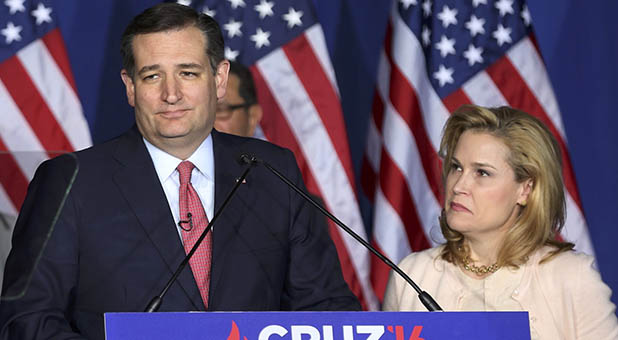Many conservative Christians were shocked and saddened Tuesday night when U.S. Sen. Ted Cruz (R-Texas) announced he was suspending his campaign.
In his concession speech, Cruz said he was dropping out because he no longer saw a viable path, leaving many to wonder what had changed in just seven days’ time. The answer, quite simply, was that after taking all 57 Indiana delegates Tuesday, the delegate math was completely on now-presumptive Republican nominee Donald Trump’s side.
By winning the Hoosier State in such convincing fashion, Trump’s delegate total hovered somewhere between 1,050 and 1,065—depending on which count you used—although most reliable counts have him at about 1,057. That puts him at just 180 delegates away from 1,237 with 445 delegates left to be awarded.
He was already guaranteed at least some delegates from West Virginia, which has direct-election of delegates, as well as Oregon, Washington and New Mexico, which allocate delegates proportionally. Estimates from those states varied greatly, but 75 delegates is a round, conservative estimate, which would leave him just 105 away from securing the nomination on the first ballot.
Trump was also very likely to win New Jersey, a winner-take-all state, which has another 51 delegates. Even if he won no other delegates leading up to California next month, he would have likely needed just 54 of the Golden State’s 172 delegates to lock up the nomination. His lead in the polls there was more than 26 points—and growing—on Tuesday.
The other factor to consider was the Cruz was, more or less, working alone to prevent Trump from accumulating delegates. Ohio Gov. John Kasich has only won his home state, and despite picking up a few delegates in eastern states, he was still officially in fourth place in the total GOP delegate count.





